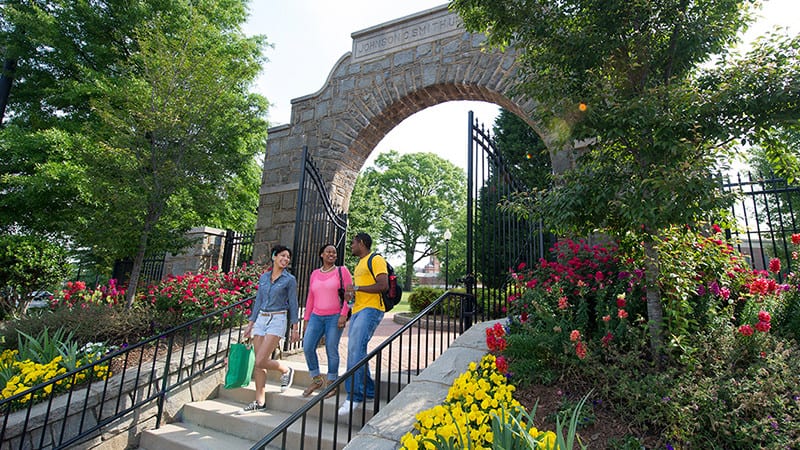HBCUs Fuel the American Middle Class

Media Contact
Monique LeNoir UNCF Communications 202.810.0231 monique.lenoir@uncf.org
New UNCF research examines upward mobility of Black students
Despite offering admission to a significant number of underserved students, historically Black colleges and universities (HBCUs) are remarkably successful at supporting social mobility among their students, according to a report released today by UNCF’s Frederick D. Patterson Research Institute, the nation’s foremost research organization focusing on the educational status of African Americans from pre-school through college.
The report titled, HBCUs Transforming Generations: Social Mobility Outcomes for HBCU Alumni, offers an in-depth review of the “move into middle class+ mobility rate” and its efficiency as a measure of social mobility for Black students attending HBCUs. It provides a breakdown of access, success and social mobility rates of HBCUs, Ivy Plus institutions, the nationwide average and the averages of non-college attendees.
Three major findings of the report:
- The “move into middle class+ mobility rate” accounts for more movement between socioeconomic classes than other popular mobility rates used to measure American students’ upward mobility.
- HBCUs serve more economically disenfranchised students than most U.S. institutions. The percentage of HBCUs that educate low-income students in comparison to the nationwide average is nearly 30% higher. When compared to other institutional types, HBCUs’ average access rate is more than twice that of all institutions nationwide and five times that of “Ivy Plus” institutions. These access rates reflect the fact that more than 70% of HBCU students are Pell Grant-eligible, and 39% are first-generation college students.
- On average and across institution type, when it comes to mobility rates HBCUs outperform all other categories and are double the national rate, being the primary post-secondary driver for moving Black Americans from poverty to the middle class.
“These findings demonstrate that investment in HBCUs builds institutions that are primary drivers of success for historically marginalized people. Contributing to the advancement of an HBCU directly influences the continued improvement of economic outcomes for Black Americans—and by extension, our society-at-large,” said Dr. Nadrea Njoku, interim director, Frederick D. Patterson Research Institute, UNCF. “This report offers an equity-centered approach to understanding higher education outcomes for underserved students. The ultimate goal of a college degree is to fuel factual learning, maturity and growth and economic prosperity. Our research shows HBCUs contribute mightily to our well-being as a nation.”
According to the report, social mobility has emerged as a primary measure for understanding the return on investment for the families of college students as well as society more broadly. The report illustrates the effectiveness of HBCUs with educating African Americans and leading them to higher earnings after graduating from college.
To read the report or get more information, please visit uncf.org/Reports
###
About UNCF
UNCF (United Negro College Fund) is the nation’s largest and most effective minority education organization. To serve youth, the community and the nation, UNCF supports students’ education and development through scholarships and other programs, supports and strengthens its 37 member colleges and universities, and advocates for the importance of minority education and college readiness. UNCF institutions and other historically Black colleges and universities are highly effective, awarding nearly 20% of African American baccalaureate degrees. UNCF administers more than 400 programs, including scholarship, internship and fellowship, mentoring, summer enrichment, and curriculum and faculty development programs. Today, UNCF supports more than 60,000 students at over 1,100 colleges and universities across the country. Its logo features the UNCF torch of leadership in education and its widely recognized trademark, ‟A mind is a terrible thing to waste.”® Learn more at UNCF.org or for continuous updates and news, follow UNCF on Twitter at @UNCF.